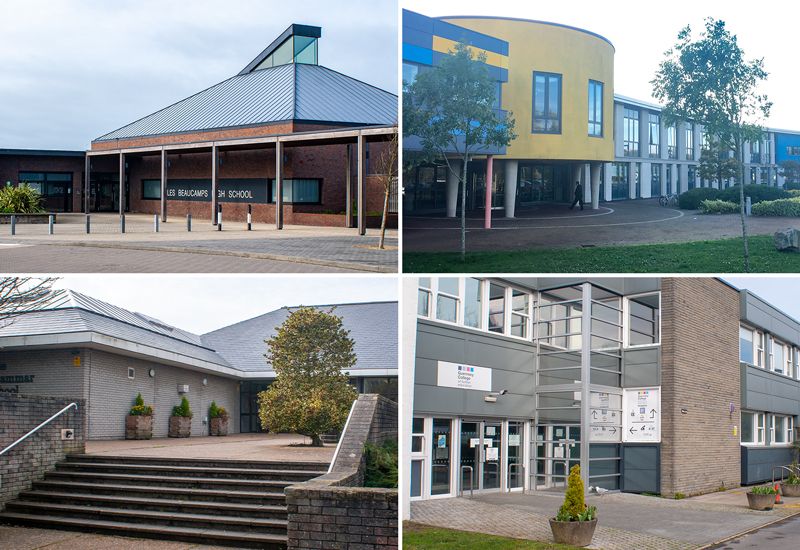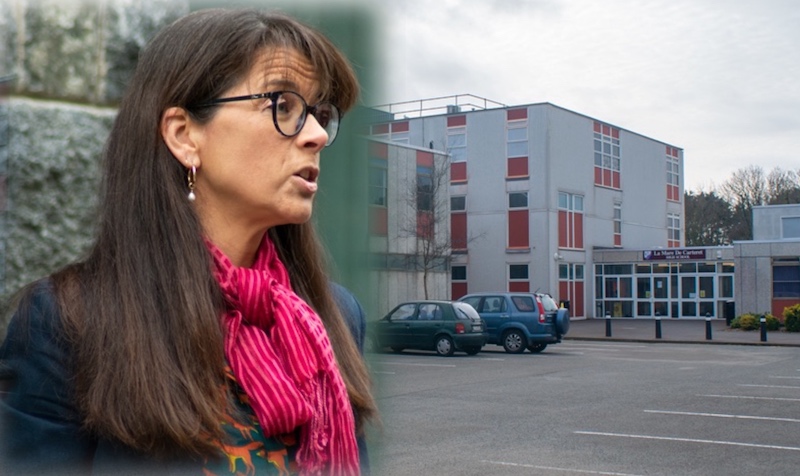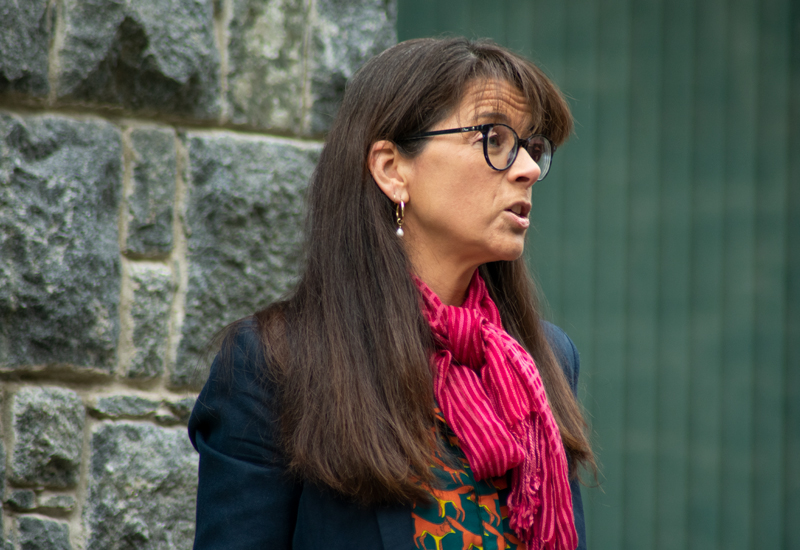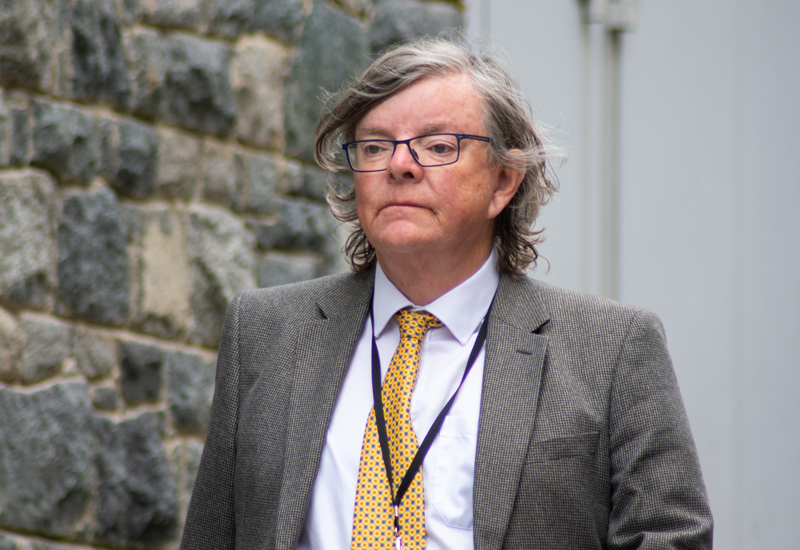


La Mare de Carteret High School will close in 2024 and a new sixth form, co-located at Les Ozouets with the Guernsey Institute, will be built after Education's £54m proposals were approved by the States.
The States will now push forward with three 11-16 schools and a single sixth form co-located with the Guernsey Institute. St Sampson’s, Les Beaucamps and Les Varendes will be the bases for secondary education, while the current building at Les Ozouets will be demolished and re-constructed for post-16 education.
It means there will no longer be 11-18 education available in the States' sector.
The capital costs have been estimated at £43.5m - with an extra £10m secured on top in case the high-level projections prove too "optimistic". Policy & Resources - which has backed ESC colleagues throughout - will have final approval for the plans, which will not return to the States Assembly.
Education says the ongoing revenue costs will not, "in the medium term", exceed the current revenue costs.

Pictured: Since most of the above estimates have been prepared using "high level estimates and assumptions", it was recommended that a sum of £10.5m be added to P&R's delegated limits.
In September 2023, there will be no Year 7 intake into La Mare de Carteret.
In July 2024, it is proposed that pupils at La Mare de Carteret in Years 8, 9 and 10 will finish the year at La Mare de Carteret and move to join their peers at Les Varendes in Years 9, 10 and 11 in September 2024.
"We need a forward-looking education system with aspiration and inspiration, with taxpayers money being stretched to its optimum," said the President of ESC, Deputy Andrea Dudley-Owen.
"Members must stop the misinformation that this is just about moving a facility [sixth form centre] down the road [to Les Ozouets]."

Pictured: The final decision means La Mare de Carteret will officially close in 2024.
ESC Vice-President Bob Murray added: “If we cannot prepare our young people then we cannot fashion a future for Guernsey’s economy; we will lose everything.”
Guernsey’s education model has gone through various proposed three-school and two-school futures following the decision to get rid of selection at 11 in 2016.
The ESC committee at the time, headed by former Deputy Paul Le Pelley, proposed a three-school model, but was dismissed due to its ‘inoperable’ post-16 option.
An amendment led by former Deputy Matt Fallaize won out, placing a two-school model front and centre. This saw Deputy Le Pelley’s committee resign and Deputy Fallaize take the reins and push forward with his model.
His committee revealed a plan for their two school model to the States in July 2019, but a requete laid by Deputies Carl Meerveld, Rob Prow and Dudley-Owen saw a ‘pause and review’ of the debate and the development of the model.
The results and findings of that ‘pause and review’ were never properly completed, with a new ESC committee taking charge following last year’s Island Wide General Election, led by Deputy Dudley-Owen.
Deputy Dudley-Owen published ESC’s policy letter and preferred model in May this year, spawning more debate and discourse, with 87% of teachers in a survey unsupportive of ESC’s plans.
However, it got voted through today by 22 votes to 17.
Watching in horror as the States of Guernsey, despite efforts from a minority, looks set to make arguably the worst political decision of my lifetime. A nakedly partisan vote that shows contempt for Islanders, if unreversed it will cause untold harm to generations of children pic.twitter.com/RcNCmnwuL6
— James Roberts (@jroberts332) September 9, 2021
Debate on education - which was deferred from July – recommenced this week with Deputy Jonathan Le Tocq’s amendment. Seconded by Deputy Al Brouard, they wanted to replace ESC’s model with three 11-18 schools in order to avoid families from having to buy their way out of the mainstream schooling system to get 11-18 provision.
However, with concerns over economies of scale, cost and a “lack of passion” about the proposals, they were dismissed by 22 votes to 14.
Next up, came Deputy Gavin St Pier and Deputy Andy Cameron’s suggestion to scrap ESC’s preferred school model and work with teachers to “co-design from the bottom-up” a new way forward that can earn widespread support among the professionals at the heart of it.
The States refused to debate the main proposal, with Deputy St Pier’s fallback option – asking the States to note the lack of support from the profession – was lost by 11 votes to 23.
On Thursday morning, debate started on a proposition by Deputies Marc Leadbeater and David De Lisle to delay any decision on the future of secondary education until more data has been collected on the current system, while also proposing the retention of La Mare de Carteret as part of a preferred three-school model.
That model failed to gain much support, and was defeated by 27 votes to 11.
The proposal that gathered the most traction among States members was the proposal by Deputies Lyndon Trott and Charles Parkinson to require ESC to come back to the States for final sign-off once the proposals are worked up in greater detail, in light of significant concerns from the teaching profession.
ESC President Andrea Dudley-Owen opposed the addition of what Deputy Trott put forward as “good governance”, arguing instead that: "letting people know what is going on is good governance.

Pictured: “Once we have this project underway, we cannot continue with this stop-start approach," said Deputy Dudley-Owen.
The amendment was ultimately defeated by 20 votes to 15, meaning the debate finally moved to general debate, where ESC's model eventually won the day.
“I don’t agree with the direction of travel, and if academic standards do decline I can say that I wasn’t responsible for that deterioration," said Deputy Charles Parkinson, who couldn't bring himself to vote for the proposals.
He was shortly followed by Deputy Ferbrache who was furious with the mess that education is in.
“I’m angry as a parent, I’m angry as a grandparent, I’m angry for my grandchildren, I’m angry for the people of Guernsey that States Assembly after States Assembly has messed up,” he said.
“This is the time to grasp the nettle – action this day, approve the proposals.”

Pictured: “I’m absolutely convinced that this is a step in the wrong direction," said Deputy Parkinson.
Deputy Heidi Soulsby said it was not the perfect model, but argued that it was “scandalous” that successive Governments have failed to make any decision at all, “wasting tens of millions of pounds”.
Deputy Rob Prow said the Education, Sport & Culture Committee had been elected by this States to lead through the reorganisation of education, and said they can be trusted to do so.
However, Deputy Aidan Matthews argued that all the proposals achieved was “a simple levelling down exercise to reach the lowest common denominator”.
“It Introduces inefficiencies that weren’t there at all,” he said.
“We are throwing away money at a time for something that isn’t worth doing. We’ve moved to one site for no good reason with poor infrastructure.”
Deputy Lyndon Trott said the falling away of the pause and review pursued by Deputy Dudley-Owen as a backbencher was “the catalyst for the mess we find ourselves in today”.
Comments
Comments on this story express the views of the commentator only, not Bailiwick Publishing. We are unable to guarantee the accuracy of any of those comments.